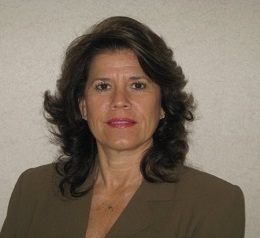Scholars International
Virtual Nursing 2021
THEME: "Current Challenges, Innovations and Best Practices in the Field of Nursing"
 14-15 Apr 2021
14-15 Apr 2021  Webinar | Virtual Meet | 11:00-17:00 GMT
Webinar | Virtual Meet | 11:00-17:00 GMT THEME: "Current Challenges, Innovations and Best Practices in the Field of Nursing"
 14-15 Apr 2021
14-15 Apr 2021  Webinar | Virtual Meet | 11:00-17:00 GMT
Webinar | Virtual Meet | 11:00-17:00 GMT 
University of Arkansas, USA
Title: Faculty In Higher Education Provide Insight on the Impact of COVID-19 for Existing Online Course(s)
Dr. Cheryl Holden is an Assistant Professor at the University of Arkansas – Fort Smith. Dr. Holden holds a Doctorate of Health Sciences (DHSc) from A.T. Still University, a Masters in Nursing (MSN) from the University of Phoenix – Tulsa Campus, and a Bachelor of Science (BSN) from the University of Oklahoma.
Dr. Holden is currently the Executive Director of the Master of Science in Healthcare Administration program at the University of Arkansas – Fort Smith. In this role, she oversees the quality and strength of the program, manages faculty, students, support strategies, and resources to provide student success.
Before joining University of Arkansas-Fort Smith, Dr. Holden enjoyed a successful, 25-year career with Mercy Health Systems, where she held various roles and responsibilities. She considers one of her most significant accomplishments to be the implementation of Epic in multiple hospitals and clinics across Mercy Health Systems.
Dr. Holden returned to the academic setting to continue her passion for continually seeking quality improvement in healthcare and educating others to lead in healthcare.
Dr. Holden has a passion for teaching, healthcare, mentoring, and serving others. She is an active member of the First Baptist Church, Fort Smith, and volunteers her time in the community, attending mission trips, and supports and volunteers on professional organizations.
In March 2020, the World Health
Organization (WHO) declared the coronavirus, also known as COVID-19, a
pandemic. The rapid onset of COVID-19 resulted in a disturbance for every facet
of human life and including higher education across the world. This research includes
information from a survey that included input from adjunct faculty, full-time
faculty, counselors, librarians, and other employees or staff in higher
education. This study noted is based on data collected from a university of
higher education in Northwest Arkansas. The data collected from the survey is
presented throughout this article. A total of N=92
individuals responded to the survey. This study aims to answer two
research questions, 1) How did COVID-19 impact faculty in higher education who teach
online course(s) pre- COVID-19 and during COVID-19? 2) Did faculty in higher
education who teach online course(s) do anything differently to prepare for the
fall, Faculty insight is significant to this study as the feedback from experts
and those with first-hand experience with online course(s) is valuable and
should be considered when preparing future online course(s).